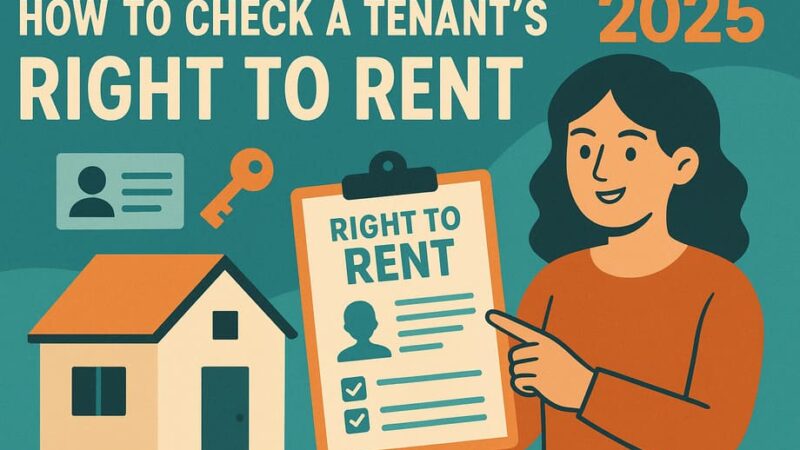UK Renters’ Rights Bill 2025 – A Complete Guide for Landlords and Tenants

The UK rental market is about to undergo its most significant transformation in decades. The Renters’ Rights Bill, which has been making its way through Parliament since September 2024, promises to fundamentally reshape the relationship between landlords and tenants across England. With the bill expected to become law by late 2025 or early 2026, both landlords and tenants need to understand what’s coming.
What Is the Renters’ Rights Bill?
The Renters’ Rights Bill represents the Labour government’s commitment to transform private renting, replacing the previous Conservative government’s Renters’ Reform Bill. This comprehensive 250-page piece of legislation aims to “level the playing field” between landlords and tenants by providing renters with greater security, rights, and protections while addressing unscrupulous landlord practices.
The bill completed its third reading in the House of Commons on 14 January 2025 and is currently progressing through the House of Lords, having had its second reading in February 2025. The Committee Stage concluded on 15 May 2025, marking significant progress toward becoming law.
Key Provisions That Will Transform Renting
1. End of Fixed-Term Tenancies
Perhaps the most significant change is the abolition of assured shorthold tenancies (ASTs) and all fixed-term agreements. All tenancies will become periodic, running month-to-month until either the tenant serves notice or the landlord meets specific grounds for regaining possession. This means that a three-year tenancy signed today would automatically convert to a periodic tenancy when the bill becomes effective.
2. Abolition of Section 21 “No-Fault” Evictions
The bill will end Section 21 evictions, which currently allow landlords to evict tenants without providing a reason. This has been a cornerstone of the legislation, giving tenants significantly more security in their homes. Landlords will instead need to rely on specific grounds for possession, ensuring they have robust reasons when seeking to reclaim their property.
3. Stricter Rent Increase Controls
Landlords will be limited to increasing rents only once per year, and they must provide two months’ notice in a prescribed form. Tenants who are dissatisfied with proposed rent increases can apply to the First-tier Tribunal to challenge them, providing an important check on unfair rent hikes intended to force tenants out.
4. Enhanced Dispute Resolution
The bill establishes provisions for an ombudsman to provide landlord-initiated mediation, enabling disputes to be resolved before they escalate to court. This should help reduce the burden on the court system while providing faster resolution for both parties.
Impact on Landlords
Preparing for Change
With the bill expected to become law by summer 2025, landlords still have time to prepare. Key steps include:
Review tenancy agreements: Landlords should align their agreements with anticipated reforms, particularly around rent increases, notice periods, and tenant rights.
Understand new possession grounds: With Section 21 gone, landlords need to familiarize themselves with the specific grounds they can use to regain possession of their properties.
Consider property standards: The bill includes updated property standards that landlords will need to meet.
Ongoing Concerns
Many landlords have expressed concerns about the implications of these changes. The legislation has sparked debate about potential impacts on housing supply and demand, with some arguing that increased regulation could discourage investment in the rental market.
Benefits for Tenants
Greater Security
The end of no-fault evictions means tenants can make longer-term plans without fear of sudden eviction. This security is particularly important for families with children or those who have made their rental property a genuine home.
Protection Against Unfair Practices
The bill specifically targets unscrupulous landlords who exploit tenants through unfair rent increases or discriminatory practices. Enhanced protections should help prevent tenants from being pitted against each other in bidding wars.
Improved Dispute Resolution
The new mediation provisions should help tenants resolve disputes more quickly and cost-effectively than going through the courts.
Special Considerations
Student Housing
The bill has generated significant discussion around student-related housing, with dedicated parliamentary time allocated to debating these provisions. The treatment of student tenancies remains a key area of focus as the bill progresses.
Pets in Rental Properties
The legislation also addresses pets in rental properties, though the specific provisions continue to be debated as the bill moves through Parliament.
Timeline and Next Steps
The bill has followed this timeline:
- September 2024: Introduced to Parliament
- January 2025: Completed third reading in House of Commons
- February 2025: Second reading in House of Lords
- May 2025: Committee Stage completed
- Expected late 2025/early 2026: Royal Assent and implementation
The exact date when changes will come into force is not yet known, but all stakeholders should prepare for implementation within the next 12-18 months.
Conclusion
The Renters’ Rights Bill represents the most significant reform to the UK rental market in a generation. While it promises greater security and protection for tenants, it also requires landlords to adapt to a new regulatory environment. Both parties should stay informed about the bill’s progress and prepare for the changes ahead.
The key to success will be understanding these new rules and working within them to maintain a healthy rental market that serves both landlords and tenants fairly. As the bill moves toward royal assent, continued monitoring of its provisions and implementation details will be crucial for all stakeholders in the UK rental market.
Last Updated on July 21, 2025 by James Cartwright







